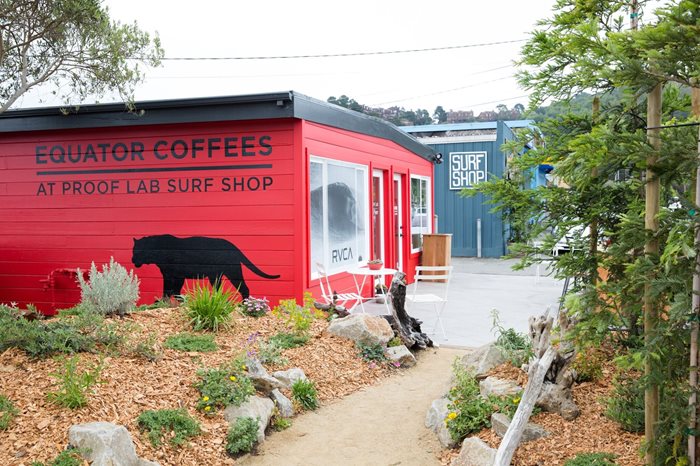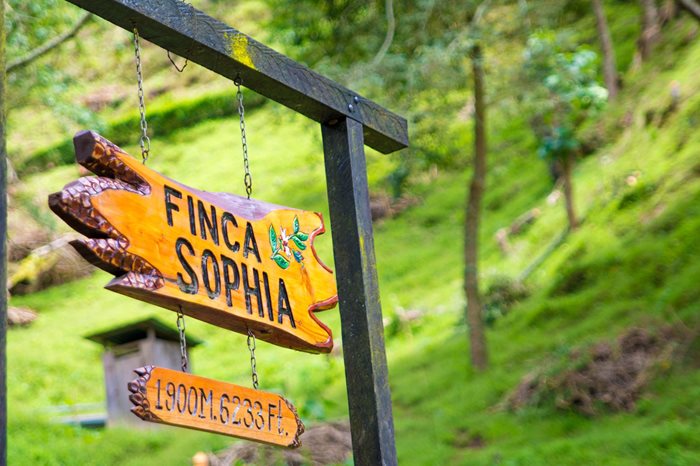World Coffee Portal speaks to Equator Coffees Co-founder and Executive Chair Helen Russell about her motivation to create positive change through coffee, ‘conscious capitalism’ and the strong social values behind the growing Equator Coffees community
.JPG.aspx?lang=en-GB&width=700&height=466)
Equator Coffees Co-founder and Executive Chair Helen Russell | Photo credit: Equator Coffee
Helen Russell co-founded Equator Coffees with Brooke McDonnell in Marin County, California, in 1995 with an ethos that ‘drinking good coffee leads to good things’.
Russell has led the business in its transformation from a local roaster to a nine-store café chain with strong wholesale, direct-to-consumer and coffee farm operations — all while maintaining a passionate focus on quality, environmental sustainability and social responsibility.
What are some of the key business lessons have you learnt since founding Equator Coffees?
Brooke and I opened Equator with a focus on sustainability and transparency. We wanted to create a place where we could be our authentic selves at work and where we took care of all stakeholders. Coffee has come a long way in the last three decades and it’s beautiful to see all the companies that are now focused on sustainable relationships with coffee farmers. I’m very hopeful for the future of coffee.
The most consistent lesson is how much things always change. We have pivoted many times in our history and each time has been a struggle, but these challenges have always left us stronger. Most recently, our wholesale business, which was focused on tech campuses, dropped overnight during the pandemic. This fast-tracked our growth into grocery and led us to build a more robust direct-to-consumer and subscription business online.
“When coffee is high-quality and fetches a better price, coffee farming can be economically sustainable”
What does B Corp certification mean for Equator Coffees?
We became a B Corp in 2011 before we opened cafés. However, our company was already growing rapidly, and we needed a framework for the next generation of decision makers to work from. As Equator was growing into an omnichannel business, we felt pursuing triple bottom line economics was the best way to ensure our vision of stakeholder value was at the heart of all decisions. The B Corp framework gives clear guidance for moving forward in a way that is holistically sustainable.
We are always learning and have started publishing an annual impact report. We continue to see comparatively low energy usage at our roastery from using Loring Smart Roasters, which reduce the energy used to roast coffee by 80%. We use the best available options for compostable single use cups in our cafés and are working towards increasing reusable cup usage. We have found ways to cut waste by partnering with local farms, for chaff and burlap, and food banks, for excess coffee.

Equator Coffees at Proof Lab, the brand's very first cafe | Photo credit: Equator Coffees
What do your values of ‘good coffee, kind people, better planet’ look like in practice?
These values are how we externalise our view of conscious capitalism. ‘Good Coffee’ is a way to articulate our belief that quality leads to sustainability. When coffee is high-quality and fetches a better price coffee farming can be economically sustainable. Economic sustainability leads to environmental sustainability. We honour our relationships with our coffee growing partners through mutually beneficial contracts, our commitment to long term partnership, and regular visits and virtual contact.
‘Kind People’ guides how we hire and treat each other internally. We develop people and like to promote from within, we offer ongoing paid training and community volunteer time.
‘Better Planet’ is our acknowledgement that coffee is a crop already affected by the climate crisis. We do everything we can to be environmentally sustainable, from conscious coffee sourcing to incorporating sustainable practices and technologies at our roastery, to purchasing milk (our second largest ingredient) from a carbon neutral dairy.
“Coffee doesn’t taste good if you know the people who farmed it are selling their crop for prices that keep them impoverished”
Today’s consumers are smarter than ever, and they are voting with their dollars by spending in a way that does good in the world. They want to enjoy their cup of coffee knowing that everyone along the supply line is taken care of. Coffee doesn’t taste good if you know the people who farmed it are selling their crop for prices that keep them impoverished.
There’s a lot of competition in the coffee space, and we believe that leading with our values draws people to us and builds community and brand loyalty.
How does being SHEowns-certified tie into the above principles?
SHEowns is a way to raise awareness of women owned businesses. The certification affirms we have fulfilled The SHE Mark’s criteria of at least 50% representation of women and/or gender diverse individuals in ownership. Being women owned, queer women owned at that, has guided the direction of our company in major ways. We have always focused on taking care of our employees and stakeholders, even before there were certifications in these areas.
I believe that because of the way women move in the world we tend to make business decisions that are more holistically minded. Our business continues to scale and reach our profitability targets, but we don’t believe in achievement at the expense of the health of our people and the planet. Supporting businesses owned by women, and other marginalised identities, has the potential to shift capitalism into something that works for more people.

In 2008 Equator Coffees founded its own coffee farm, Finca Sophia, in Panama | Photo credit: Equator Coffees
How is each business area performing?
Our roastery and cafés work in symbiosis with each other. Not only do our cafés allow us a venue for showcasing our incredible coffee, they help potential wholesale clients find us. We have many restaurants, bakeries and offices who have brought in our coffee because of the great experience they had at our café. We will continue to slowly grow our retail footprint, which means we can buy and roast more coffee, which creates a greater positive impact.
Our farm, Finca Sophia, located in the highlands of Panama, is a passion project that we learn a lot from. The insight into coffee growing has been priceless, and we continue to push the envelope on quality. The community has been generous with their knowledge, and even shared coffee seedlings with us.
Celebrating coffees from Finca Sophia and introducing our customers to the heights of specialty coffee helps open consumers’ eyes to the potential out there and helps them understand how undervalued and underpriced most coffee is.
What’s next for Equator Coffees?
Brooke and I are in our 60s and we are working now to ensure that Equator lives beyond our daily involvement as a beacon of conscious capitalism within the coffee industry. Sustainable growth has always been our mantra, knowing that we are always adapting and learning.
We will slowly grow our café footprint in California and will keep buying more and more coffee from our long-term partners. We will continue to invest in our people and grow the next generation of coffee professionals and will continue to make choices that positively impact the environment.
Helen Russell is co-Founder and Executive Chair of Equator Coffees.